|
by Tarique Ejaz and Luv Mehta Tarique: To start off with the discussion, let it be read on record that this will definitely not be a spoiler-free discussion as we go ahead and analyze the entire movie (including the Easter Eggs) and their likely implications in the DCEU. Luv: Also, because I don’t want to be pestered by Illumianti-conspriracists who believe we might have been bought over by Marvel, none of the MCU films will be referred to. T: Accepted. So let us start the take by discussing about what works for the movie. This is going to be a rather lengthy discussion though. This post is sponsored by the Heritage Quiz Festival, coming up on the 31st of March and lasting for three days, and including a MELA (Music, Entertainment, Literature, Arts) quiz. If you're in Calcutta, do come on over! L: Haha yeah. Before that, how did you like Man Of Steel? T: I really liked Man of Steel. Like it was one of the highly anticipated Superman movies and I can brazenly state Cavill was meant to play Superman. Although the darker shade of narration was a bit disheartening but with time, it started to grow on me. And the destruction (which was carried out on a massive scale) was rather simplistically justified by a man with God-like powers learning to master them. L: I actually liked it better than a lot of other people. The Metropolis action scene is an atrocity, and the reasons put forward by Jonathan Kent about why Clark shouldn’t save people instead of keeping his identity secret were stupid, but I love how the first act of Superman was to surrender himself to humanity and put himself at their service, instead of acting egoistically or fatalistically. Also, I believe Supes killing Zod was the right decision to make, even if I think Superman woud have taken that decision a lot earlier (or, at the very least, try to steer the fight to less populated areas). T: The thing is Superman killing Zod although highly debated by a lot of people kind of set the tone of what this set of DC Movies was trying to achieve. He tries to avoid doing that to the end and then he has to make a call and that reaction of exasperation and pain he expresses at the end of killing Zod only shows how difficult it was for him. Man of Steel had its flaws but it gave us a Superman that I was somewhat able to relate to in terms of the dilemmas he faced regarding making decisions (which eventually carried over to BvS) L: I'm not sure if it did, but let’s keep that for later. How did you like BvS, and what did you like and dislike about the movie? T: Batman v Superman established a very simple background as I started watching the movie. It seemed from the very onset that it was meant to be a movie that establishes the new Batman into the DCEU and the thing that Snyder could have avoided which I have stated over and over again is that he should have never gone with the title of ‘Batman v Superman’. A simple ‘Dawn of Justice’ would have done as well. The fact that he raised the profile of the movie so high made the movie all set for a fall if he failed to stick to what he seemed to be promising to deliver. It was like more Batman centric from the start to the end. I have a lot of points to contest. Why don’t we walk into it one by one. L: Okay, sure. Personally, I hated the movie, having watched it twice now. I know you like it despite a lot of the flaws you found, and I really wanted to as well, but there are a lot of problems I can't get past. Let's start with the dialogue. For a movie titled Batman v. Superman, the movie necessarily took on a philosophical bent before the fight. Zack Snyder and David Goyer wanted this movie to be important, its message to be respected. I have problems with a lot of these, but we’ll get to those in a while. Firstly, there are so many lines of dialogue in the movie that are just horrible. The first sign everything’s going to hell is in the Metropolis destruction scene where the employee whose legs have been crushed, when Bruce asks for his nickname, suddenly says, “You’re the boss, boss.” And then we have the whole uncomfortably bad recurring gag about jars of piss. Secondly, of course, there's Lex Luthor. T: Jesse Eisenberg reminded me of a potential Joker-esque kind of a character more than a Lex Luthor. Plus, there wasn’t much in the movie that showed as to how one of the most powerful minds in the DC Universe exercises his intellectual expertise. The part where he is creating Doomsday and the AI of the ship says that it is dangerous to go ahead with it. He simply says “Do this.” The part where he does his best to frame Superman is interesting but then his motives to exactly carry such deep hatred for Superman is not addressed properly. Having said all that, the part he gets his head shaved and is sent to prison seems that it would mellow him down and we might just get the Luthor we always wish to have. L: Might, but his dialogue ends with the annoying “ding ding ding ding ding”. I actually hated how Eisenberg chose to play the character. Lex is smart, manipulative and brilliant at convincing people that he is in the right - this guy was President at one point of time in the comics! By contrast, Jesse Eisenberg’s Lex is so preoccupied with sounding menacing and goofy and Joker-like all the time that he can’t bother even trying to convince anyone about his views. He’s so goddamn inept, he fails to convince an anti-Superman senator to bring Kryptonite into the country! Luthor should have her wrapped around his little finger with lies and deceit, not spout goofy lines about inverting a painting of hell because it sounds lofty! T: To be honest, I didn’t actually dislike that piss-gag. I found it something to which while watching in the theater, I did smirk. (Not the goofy Jesse’s Lex smirk) The thing that I had in mind when I walked in was something I had created or started doing since the Nolan movies. That is to consider the entire Universe to shown in each silver screen take of the superhero genre to be a sort of a parallel Universe to the actual comics one, thus, the references holding significance and as you had pointed out in a conversation I had had with you earlier regarding it not directly influencing the portrayal. Lex is not the Luthor we have known or come to fear but he is seen to appear to mellow a bit from the earlier psychotic appearance (barring that ‘ding ding ding’ reference. That was Joker-esque from every conceivable angle) I have to talk about the character the got perfectly right, though. Diana was a good part of the movie, with Gal Gadot acrrying out the entire amazonian princess charm with such ease. L: I personally loved Wonder Woman. Even with the small amount of screen time she got, she was the sole reason I’m pumped for a future DC film. Her style of fighting is the most visually interesting out of the three, she’s directly implied to have an interesting and active career that I’d love to know more about, and the fact that she actually smirked while fighting in a movie like BvS just won me over in half a heartbeat. Plus, Gal Gadot is now my new crush. Let's talk about Superman, though. Zack Snyder has recently announced that he’ll be doing an adaptation of “The Fountainhead”. It actually makes a lot of sense when you apply this news to the movie, because the philosophies espoused suddenly make a lot of sense. The main arguments everyone has against Superman is this - why should he be able to do whatever he wants, however he wants, just because he has unlimited power? It’s a point that, unfortunately, gets harped upon without much analysis. Superman’s first act in MoS, as I said, was to submit himself at humanity’s service, even if he was firm about them not interfering in his public liberties - which this movie seems to forget, not giving him any opportunity or motivation to even talk to the public or government, or convince them why he only has best interests in mind. The more interesting arguments, though, come from Martha Kent, when she says Superman doesn’t owe the world anything. He has unlimited power and the right to use it for others’ good, or for his own, is the argument, and you can immediately see an objectivist philosophy in that statement. The problem is that Superman is never really given any chance by the movie to justify himself, or to cut these two arguments. The argument he can make, and that he has made multiple times in the comics, is that he was born and raised as a human being of Earth, and that is why he has a responsibility to his kin that he is determined to fulfil, even if this universe has opted, like the earlier film franchise, to introduce him as an alien at the very beginning. The better argument to make, given the general treatment of the movie, would be to argue that saving people and being selfless are qualities that still carry a lot of merit, choices that still matter to contrast the selfishness and darkness of the world (and this universe is pretty dark). However, Superman’s final act of sacrifice comes immediately after he tells Lois that she is his world. This carries weight, in that he is willing to do anything for her, but a wrong kind of weight, if I may, because it establishes that his brand of heroism ultimately comes from extremely personal connections. He didn’t “die” because he needed to save the world, he “died” because he had to save Lois. T: Superman is driven by personal connections but the fact that he became so can also come down to the point that he became unsure of what the world wants him to be (thereby, Martha making her point) after the Man of Steel showdown where he tries to save the people at the cost of heavy devastation. He does not come out to speak to the people, government and so on because it seems that he is in a moral dilemma as to how to tackle this entire situation where he is looked highly upon by some while hated by the others. And when he decides to do so, we know what exactly happened. But I do agree with your point to a large extent. This Superman was Lois-driven, it seemed. To think of it, I do not find much wrong with it since there is no harm and particularly no reason for him not to be extra driven when it came to his loved ones, including his mother. The thing is in the movie, he had not shunned his responsibility towards humanity as was shown in the shots where he dragged a ship by the chain, saved a rocket ship destroyed at launch or rescue a girl from the a burning building. The thing is when there was a need for Superman, he answered. Yes, he didn’t know how to deal with the responsibility that came with being Superman or the dilemma that the collateral damage brought about when he tried to do right by the people, including the deaths for as he stated post the Senate House explosion… “I didn’t see it, Lois. I just didn’t see it.” That reiterates the fear he himself held regarding him being there for each and everyone and every calamity. L: Yeah, that’s true. I’m just kinda disappointed with that Senate scene because the one chance Superman has to explain his side of the argument, the movie immediately distracts from his moment by making the place blow up. For a movie fundamentally about discussion about the contrast of ideologies, there’s no chance given to Clark to explain his side, both for the relevance of his heroism and for the problems with the violent vigilantism Batman practices. But yeah, there are glimpses of the innate goodness of Superman seen in a lot of scenes. Again, recall that Superman’s first act in the previous movie was to surrender to the authorities, right? And this movie had him helping any way he could. But then, recall the scene with the flooded town and the survivors on the roof, as Superman levitates with a hero pose, stationary. It makes for quite a visual impact, but I was still wondering, “is he going to make a Team Rocket pose now? Why doesn’t he just save them?” Although I do realize it’s a nitpick. The movie is quite confused about how to treat Superman, though, so maybe that leads to my own confusion as well. Henry Cavill doesn’t have a lot given to him by the script, and while he does okay, he cannot make a difference in our minds. T: First of all, it is never shown that he doesn’t save the people who were looking upto him in the flood ridden town. That pose was intended to be portrayed that way. That is Snyder for you. Second, the Senate scene blast took me by surprise because I did not in any way see that coming. I was expecting him to explain his stand and be accused and be put to slander for effecting mass destruction in his attempts to save people or a single person. But honestly, I didn’t care at that point because it got me more interested in what was to follow. Yes, the ideologies seem to be conflicting but what I am able to understand is that all Snyder wanted to portray for Superman at least was ‘Should I continue doing this at the cost it incurs as long as I am doing as much good as I can without being understood by the people’ to ‘Let me explain why I do what I do with the best interests for humanity in my mind so they know that I am on their side out and out.’ It could have been portrayed better but I am not complaining regarding that. I choose not to. But enough about Superman, let’s come to Batman. L: The movie has established a very different kind of Batman, but I was sure that it would be the best screen adaptation of the iconic hero. By contrast, I found it to be the worst. Yes, even past Clooney. Let me explain why. I understand the concept of Batman’s “no killing moral code” being flawed, but he does have a point when he tries to keep mooks and goons alive instead of ending their lives, so that he’s a terrifying force of good instead of yet another evil force. Yet, this Batman gleefully kills goons, either directly (blowing up their car by shooting machine guns at it) or indirectly (branding them during torture so that they’re killed in prison). The problem is, for all the philosophizing against Superman and his brand of justice, no one cares about Batman’s violent brand of vigilantism. ABSOLUTELY NO ONE. There’s a single newspaper clipping that talks about Batman branding people and trying to sound vaguely accusatory in the headline, but that’s basically it. Even when Clark wants to talk about Batman’s ethics and vigilantism, no one cares or wants to engage him on it. Which is the biggest problem I have with the movie. For all its discussion on Superman’s ideologies, the movie ultimately gives him no scope for debate for his side, only choosing to pile the points against him (without much analysis). By contrast, Batman’s troubling moral code and methods of action are taken at face value to be right and justified, and there is no engagement with whatever points Clark wants to make against him. T: The thing to be understood from the start having read excerpts from Snyder’s take on the movie and even Terrio and Goyer was that they wanted to make this movie BIG and not just in terms of hype or material, but in terms of being the foundation stone of the DCEU. The problem which came up was that they got messed up on two points: 1. Adding too much material in one single movie. 2. Transcending certain basic tenets which made the iconic characters, the iconic characters they are. The thing about morals codes and crossing has been debated over in comics for decades in almost any Universe, be it DC or Marvel. This movie had set out to introduce a Batman (Let’s address the Dark Knight first) as a veteran of 20 years of crime-fighting who just doesn’t care anymore. (At least that is how Snyder wishes us to see it) He wanted, and I am saying this only from what I have seen and read, to create a Universe where Frank Miller’s take meets the Injustice kind of storytelling. Yes, the moral code of “no killing” is literally out of the window for the Bat but this is the darkest incarnation of the Batman on screen. I will not say that it was the worst Batman, rather solely, looking at the character and the potential he brings to the table (with proper characterization in the future movies, hopefully) he is a major character in this particular take. We need to remember that the references made to his past and the point where he tells Alfred out and out that he is a criminal rather than a hero shows that he is somewhat what Lex was trying to do to provoke Clark into going after him. The fact that there aren’t newspapers covering him can be that he operates in the dark and under the radar mostly unlike Superman who has never hesitated to come out into the open. So the few cases that have been reported might have been ignored by most media houses for they had no leads on this Bat vigilante of Gotham. Batman, as opposed to Superman, was always made to be a myth because not many, including people in Gotham have witnessed the man’s presence in itself. (Although most of the points are speculative for it is not out and out stated in the movie, which exactly forms the core of our opinions) One more point, one reason as to why people, including the government, decide to actively pursue Superman’s stand as to how he wields his power while ignoring (so it seems) the acts of the Batman is because they expect (know) him to be a normal human or someone without such unbelievable powers like Superman himself. L: Coming to the action sequences, though, keeping the moral problems I had with Batman's implicit decision to kill people apart, I actually liked a lot of the sequences. The Batmobile sequence was too dark and not very well planned out to be memorable (especially compared to Nolan sequences) but the Knightmare’s sustained action take I liked quite a bit. T: And then we got that mind-blowing solo Arkham-style Batman take out. That made me almost jump in my seat. That line where Batman tells Martha “I am a friend of your son’s” and she says “I figured from the cape” got me to smile. L: Oh, I loved the Batman fight in the Russian’s building as well. Great choreography, clearly shot action, and a lot of really cool moments (Batman hurling the box at the goons was a highlight). T: The Superman-Batman fight sequence was fun. The armor was a thing to behold, despite the unclear and half-baked motives for the actual fight. And the part where Martha becomes the center of focus, I have nothing against it. I was so invested that it was okay for me to pass it off. L: I liked how this time, Superman was the more sympathetic figure to root for in the fight (as opposed to the graphic novel). But the fight was ideological in The Dark Knight Returns, while here, Batman acts every bit like the murderer he's built up to be. He considers Superman subhuman and cracks WWE lines in ten variations of “You're not a man”. My personal anger at that aside, the fight is shown very well, with properly planned and coherent choreography. The Doomsday sequence, though, gives nothing for Batman to do other than zip around and stand awkwardly from afar (but maybe I can accept that, since he isn't the master strategist of the comics), and Superman has exactly one good part where he starts the beam battle. That sequence, though, is my favourite because of Wonder Woman. Her style of fighting with the shield and sword is much more interesting to look at, much easier to follow and remember, and she's the only one out of all the heroes who actually smirks! For the first time, someone's enjoying themselves in this movie. She's got a classic “so that's what you got? Give me something new” kinda expression, and that's got me pumped for the WW movie. Although I do have a problem with the plothole about Superman not giving the Kryptonite spear to Wonder Woman to use. Or any of the three actually discussing and strategizing throughout the fight, like a team. T: The Doomsday battle sequence was the high point of the entire movie. Despite everything, I seriously like Affleck’s Batman. The part where Superman and Wonder Woman are going head on against Doomsday and Batman is like ‘What the hell am I doing here in the first place?’ Was reminiscent of the JL animated series certain episodes where Batman absolutely had nothing to do and he would just watch the heavy-hitters tackle the challenge while he tried to figure out something. (The initial plan to get Doomsday to that area was Batman’s plan. And he did state that the area was not inhabited.) The part where they do not strategize can be said that it was the first time they were fighting together so it is likely that they were not really in that mindset then or didn’t really think of it like that for here are three stalwarts who mostly do what they do on their own. It takes time for them to actually gel in as a group so I won’t look into it that much. L: In relation to the setup for the new universe, I’m quite disappointed. Batman is literally shown like an oracle, with his dreams doing the majority of the heavy lifting for the foreshadowing, and none of it mattering in the long run for a movie. I understand that the movie itself needed to set up the Justice League, but it could have done it in a way that organically helped the movie, instead of stopping the plot midway through a decryption scene to show us parademons, Superman ripping Batman’s heart from his body, and the Flash making predictions never shown in the movie (even if it pays off years later, it acts detrimentally to the movie we ultimately got). And the other scene to build up the Justice League, with Diana checking Lex’s drive, not only feels like a commercial break in the middle of the movie (we’re in the buildup to the Batman versus Superman fight, remember) because it’s completely unrelated to the plot, it implies that Lex named and designed logos for all the four upcoming heroes of the JL. T: When I initially saw the metahuman folder in Lex’s drive that was decrypted by Bruce, I was so amped up that it didn’t dawn on me then that the logos were something was designed by Lex himself. So in a way, it seemed that Lex Luthor gave a certain definition to the members of the League. The incoherency exhibited in the way the Justice League potential heroes were introduced was disappointing but Ezra looked super-cool in that little cameo and I for one am looking forward to the solo films. But there are so many loose ends in the movie that speculations and assumptions are what help to tie them down. In an interview, Zack Snyder stated that he killed Superman off because he wanted Batman to lead the Justice League. While Batman’s always been the brains of the JL, Superman has historically been the leader because he was the heart. I’m not sure whether I’m fine with that direction, especially with the current characterization. And in the actual Justice League it is Batman who actually beings the team together and Snyder’s statement implying that if a being with invulnerability, God-like powers and someone who is looked up to by people for inspiration (citing the Superman statue shown) goes about asking powerful individuals to join a team to protect the Earth compared to a vigilante with muddled moral-codes and a darker shade of reputation (not to mention being a mortal with no special power) doing the same, would bring about drastically different results. That in a way does sound interesting to me. Moreover, I am highly intrigued to know as to how they choose to resurrect Superman. That will test Snyder more. (Not saying that he has been super-solid so far) L: The thing is, though, that when I ultimately sit down with the movie and look at it, I see all these ambitions that it has, all the philosophies it wants to espouse, all the risks it wants to take. And yes, I can imagine an alternate movie where all of it would have worked. It would have to be longer, include substantially more scenes regarding justification of the fight, the sides of the debate, the discussion on Batman’s violent vigilantism (for all we know, he might always have been a killer here - it’s never said if he was a pacifist-turned killer or an eternal psychopath), but that’s the thing about the movie. It’s trying to be too much at once, when it should have concentrated solely on the ideals of Batman and Superman and how they contrast - and how they ultimately agree with each other. Let’s talk about The Dark Knight Trilogy, for example. When you watch it now, all the stories are thematically quite simple, actually - the first concentrates on the theme of fear, the second on chaos, and the third on moving past your demons and your past. All discussions in each of the movies only pertain to these themes, and the end result is all the more stronger for it. Zack, I don’t know if you’re reading this (or maybe you are, we’re quite popular in America and the planet of Mars) but it’s okay to focus on one or two themes per movie. If you try and put too much into the dish, it’ll get all weird and incoherent. And not entertain you as much with the action sequences. Okay that metaphor failed. But still. T: That is the thing. Nolan was more concerned with a theme in mind. Snyder well… is um Snyder. That is the only way I could put it. At the end of the day, Batman v. Superman is no masterpiece. It is neither the worst DC movie ever. I would say it is a decent movie but not worth the hype it carried or brought about with it. Having said that I am going to watch it again and I am going to do so tomorrow itself. And yes, I like Affleck’s Batman alot. (mainly in terms of the entire persona and appearance) That scene where Batman asks Superman “Tell me do you bleed?” I will keep that scene with me and look ahead to a more coherent and structured DCEU movie set in the future. L: I hope the DCEU improves from here as well. Right now, they’ve got nowhere to go but up.
Follow us on Facebook and Instagram to be notified whenever we release new articles.
Do you use an RSS reader? Even better!
0 Comments
Leave a Reply. |
Categories
All
Archives
December 2022
|
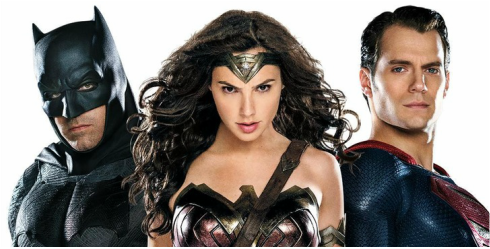
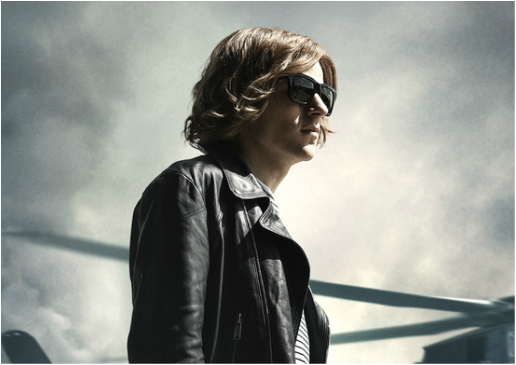
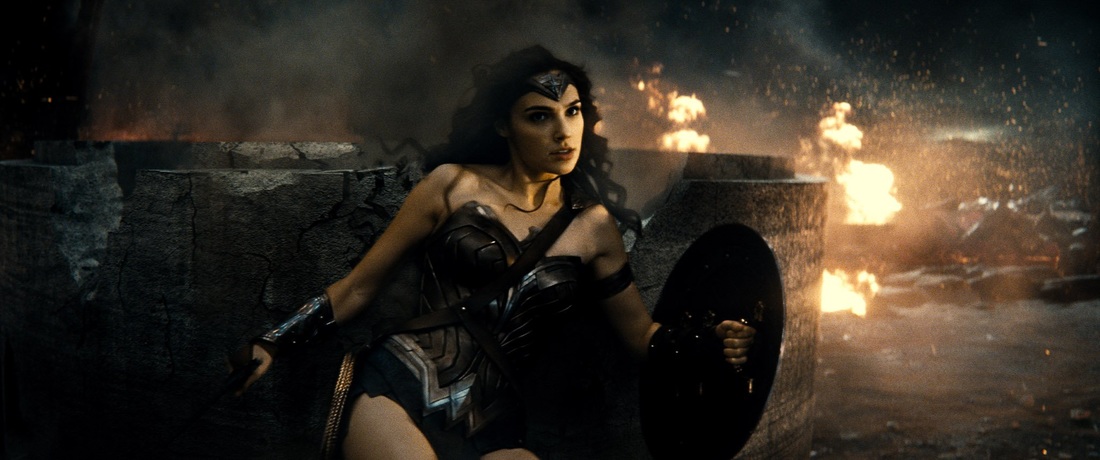
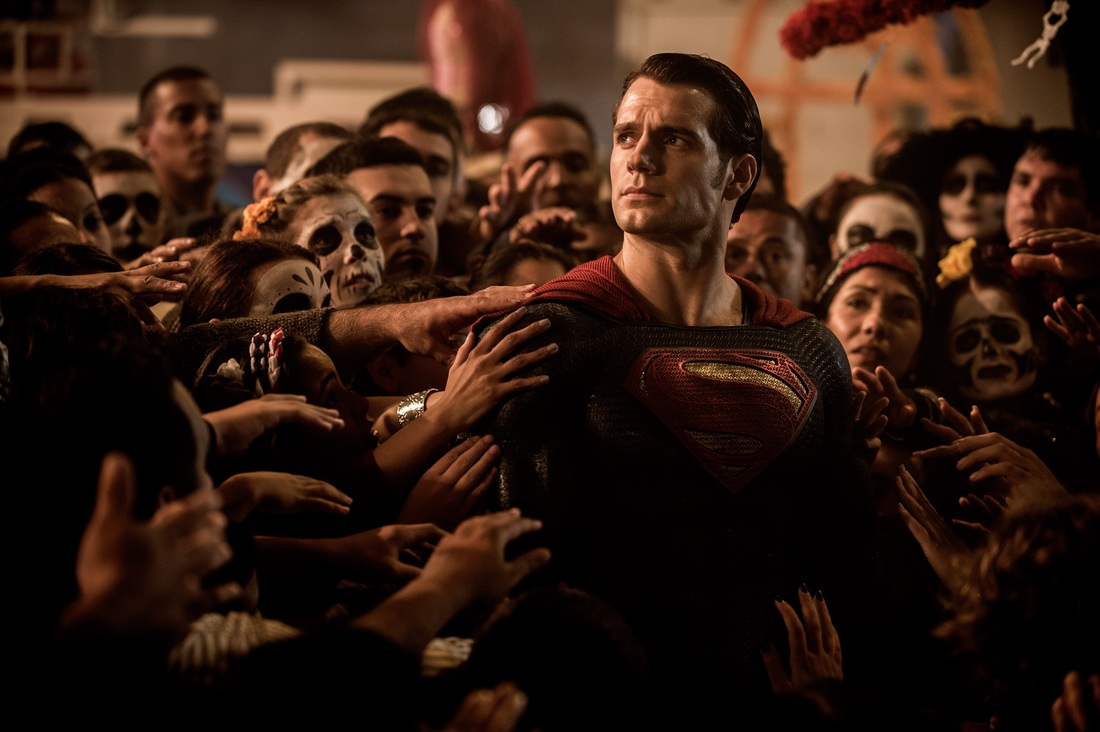
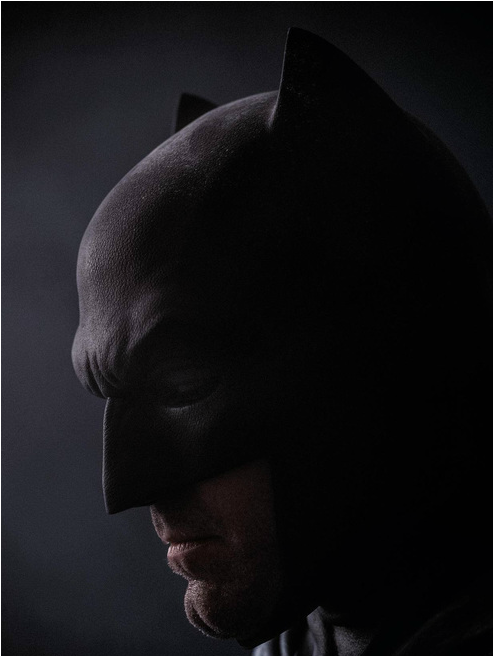
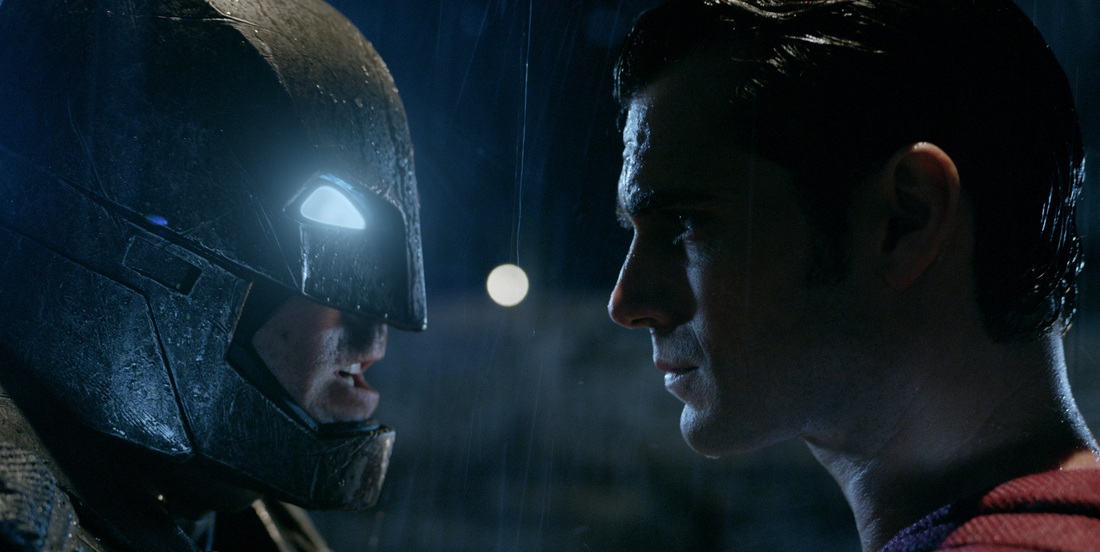
 RSS Feed
RSS Feed
